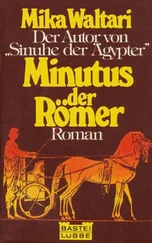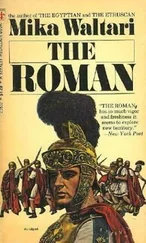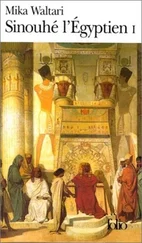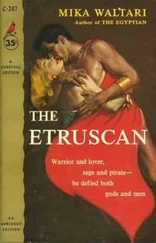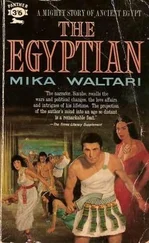So it was that I had a black eye and a swollen lip when in the raw morning mist we broke out and stumbled over the familiar battlefield to the Carinthian Gate, and there cried piteously in the name of God to be admitted. Many of our fellow prisoners had been almost too weak to stand, far less escape, but at least a dozen women pressed through the gap that Andy had made in the fence and followed us, screaming. Hearing the noise of these poor women, who seemed to imagine that the louder they shrieked the faster they could run, the sentinels on the walls made ready for us and lowered ropes and ladders, at the same time discharging a swarm of arrows at our pursuers, whom the mist concealed.
Trembling and dizzy we crawled up the walls, and friendly hands helped us over the top. We were thumped on the back and offered bread and wine, and as we ate we helped to haul up the women who with screams and flapping petticoats emerged like distracted hens from the sea of mist.
These women were fairly young and handsome, for the akindshas on their raids chose always the best for the slave market and slew the rest. Both Germans and Bohemians yelled with delight at the sight of them and welcomed them as a gift from heaven. Having helped them from the wall they at once threw them down on the bare ground, all breathless as they were from their flight, and raped them so quickly that they hardly understood what was happening.
This lively scene was interrupted by a red-haired ensign who came dashing from the guardhouse to beat his men on their hinder parts with the flat of his sword and revile them shrilly for being worse whoremongers than the Turks. He then ordered them back to their posts lest the enemy should gain possession of the gate by a surprise attack.
The seasoned veterans, with their bloodstained bandages, singed beards, and blackened cheeks, laughed in the stripling’s face and invited him to kiss this and that. But they let the women go and hauling up their breeches returned to the watch tower. The ensign now addressed us in harsh tones and threatened to hang us with his own hands if we proved to be Turkish spies. He pointed to a number of German-clad bodies dangling from gallows at the top of the wall, and declared we should suffer the same fate unless we at once made full confession.
But Andy knew how to handle such young cockerels as this. He stepped up to him, belched wine fumes in his face and said he would teach him how to treat the Emperor’s loyal servants, who escaped in peril of their lives and rescued a flock of Christian women from the fate awaiting them in Turkish harems. So convincing was his eloquence that the young man blenched, addressed him as sir, and assured us that for his own part he had no suspicions, but that his duty required him to be strict. He begged us therefore to comply with regulations by making water before him and giving our names, and the names of our regiment and commanding officer. When he had entered these particulars in his guard book we could obtain passes from the town hall.
We could not refuse so moderate a request, and when we had given him the visible proof he asked for that we were not Moslems, Andy explained that we belonged to the advance guard of the lands\nechts who had been sent to Vienna’s relief from Italy and that our leader was the Emperor’s famous general Bock von Teufelsburg. It seemed best not to mention any well-known man for fear of detection, but I hastened to emphasize that the name spoke for itself, having won honor and glory in seventeen years’ campaigning, and it was not our leader’s fault if our troop had been surprised by the akindshas and dragged away for questioning. We two, I said, were the only survivors.
The ensign listened open mouthed and protested eagerly that the name of Bock von Teufelsburg was familiar to him. He repeated his instructions to report at once to the town hall for further interrogation. Then he seemed to hesitate; he bit his lip in some embarrassment and said, “The prosecutor and provost marshal are somewhat severe, as is natural, in view of Turkish cunning. They would rather hang ten innocent men than allow one suspect to escape. Nor are deserters kindly received, and as a good Christian I warn you that you’ll be imprisoned in any case until you can find someone to vouch for you. Failing this you will be hanged.”
Then in a burst of candor he went on, “You and your comrade would be wise to shun the town hall and the provost marshal’s men like the plague until the Turks have withdrawn. You’ll have no difficulty, for there are many other deserters hiding in taverns and in the lodgings of softhearted women. Go in peace and fortune go with you. Drink a cup now and then to my health and success.”
With that the good-natured boy threw us a silver schilling and left us. Andy and I slipped away into the October mist.
I was for seeking out Aaron at once, but Andy, holding my arm negligently between finger and thumb, trudged along the filthy streets under the blank gaze of charred, roofless houses, and as he went he sniffed the air. Just as a compass needle quivers to the north, so Andy amid the desolation of this city made unerringly for a tavern, whither a mob of drunken, quarrelsome, boastful, dicing Germans, Spaniards, and Bohemians had preceded us. When we had setded ourselves on two empty barrels with a stoup of wine before us Andy said contentedly, “I feel a better Christian every moment, and can hardly believe that only yesterday I wore a turban and washed my head and neck five times a day.”
“I’ve nothing against a morning draught,” I said with some reserve, “but the task we’ve been set weighs on my mind. No doubt we should be wise to buy up straw, wood, and pitch in good time, so as to make a fine blaze of this sour and squalid city.”
But Andy with a rattle of his purse called for more wine and said, “The hairs of our head are numbered and not a sparrow falls to the ground unless shot, so it’s needless to take thought for the morrow today.”
He was soon chatting with a couple of scoundrels who peered greedily into his purse, embraced him, and swore he was their best friend. Andy flung down three Hungarian gulden and ordered the innkeeper to serve drink to both these brave defenders of Vienna. But a pock-marked, villainous fellow with a bloodstained Turkish kaftan thrown over his shoulders resented Andy’s openhandedness and in his turn poured a heap of gold onto the slimy, bespewed table, coughed hoarsely, and cried, “In the name of Christ, the Virgin, and all the saints! I will pay, for I’ve escaped from Turkish imprisonment, killed one of their pashas, and performed such feats as no one would believe were I to relate them. Let these Turkish coins speak for me; I take it as unfriendly that anyone should seek to forestall me.”
Andy quietly swept his coins back into his purse, declaring that he had no wish to insult so great a hero.
In time all were thoroughly fuddled, and the ruffian with the gold ordered the tavern keeper to bar the door. He then delivered the following speech.
“Are we not all brave men? Have we not all done deeds that for a thousand years will be praised by Christians everywhere? But who thanks us? We’ve had neither pay nor the smallest chance of plunder-yet is not the town ours, since we preserved it from destruction? It is but fair that the inhabitants should pay us what we’re owed, and as soon as the cavalry have set off in pursuit of the Turks we shall have our chance.”
The topers roared that this was the most sensible talk they had heard since the siege began. But, said they, we’re few and the provost marshal is a ruthless man. Rope and stake await everyone who seeks justice.
The pock-marked man lowered his voice and his eyes glowed as he said, “Let us bring the good news to all trustworthy comrades, and tomorrow evening after vespers set fire to the city! The marshal’s men will be too busy quenching the flames to hinder us in our good work.”
Читать дальше

